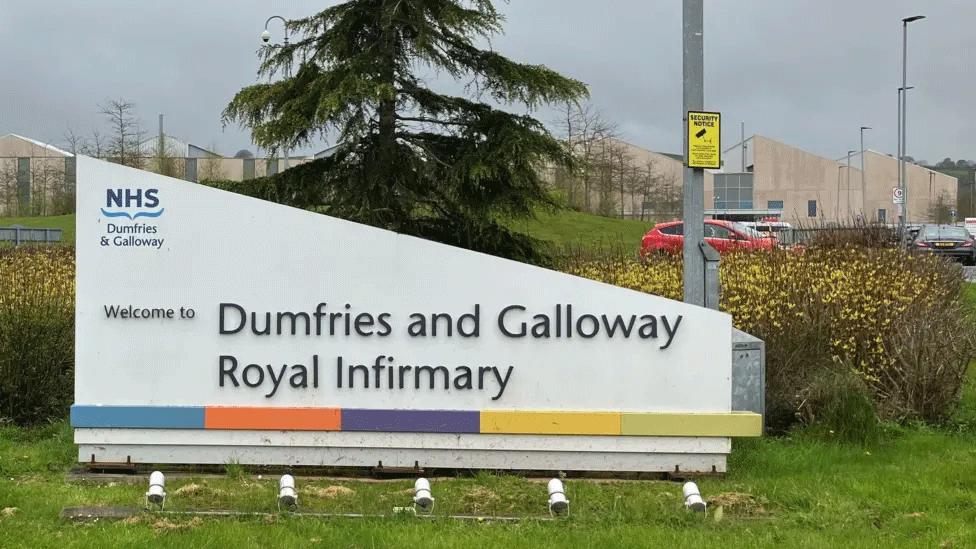Hospital emergency department operating 'beyond capacity'

The health board said the emergency department at Dumfries Infirmary was operating "beyond capacity"
- Published
A health board has warned the emergency department at its main hospital has been operating "beyond capacity".
NHS Dumfries and Galloway said all departments were working under an "extremely high degree of pressure".
A senior doctor at Dumfries and Galloway Royal Infirmary (DGRI) said they had been "incredibly busy" all year - but pressures were intensifying with winter.
Patients are being urged to consider if a trip to A&E is absolutely essential and whether alternative NHS services could be used instead.
The warning comes against a backdrop of similar issues being faced by health boards across the country.
BBC Scotland News understands senior doctors working at a Glasgow hospital asked for a "major incident" to be called this week but had their request declined.
NHS Grampian declared a "critical incident" for a sort period last week because Aberdeen Royal Infirmary was full.
Dr Pete Armstrong, a consultant at the emergency department at DGRI, said his hospital was also facing intense pressure.
"In one average day at DGRI we might be seeing 130 people arrive at the emergency department – which is a really high number, and sees us operating beyond capacity in order to meet that need," he said.
He said that could have an impact on the length of time people needed to wait and how services might have to adapt.
The health board has put adverts on social media reminding everyone that the emergency department is for life-threatening emergencies only.
Among the examples given of such situations are a heart attack, stroke, collapse or a badly broken bone.
It said that for everything else people were advised to visit the NHS Inform website, contact NHS24 or their local pharmacy or medical practice.
Lengthy waits warning
Visitors to the emergency departments at DGRI and at Galloway Community Hospital are being issued with leaflets setting out the "reality of the situation".
They spell out that they could face lengthy waits or be directed to an "alternate source of help".
It could mean having to spend time in non-clinical areas such as waiting areas or corridors, or potentially sharing patient rooms with another patient.
Dr Armstrong said: "Hopefully the public messaging, on social media and with these leaflets, gives people an understanding of the challenge faced, and how we might need to adapt in order to meet this challenge.
"We're seeing this sort of pressure right across the country, and there's no question we will need to be flexible in order to make it through what looks set to be an extremely challenging winter."
The health board added that work was also taking place to ensure that everyone who was medically ready to leave hospital could do so.
Related topics
- Published3 December 2024
